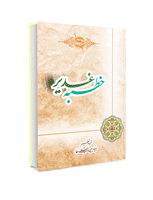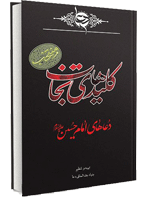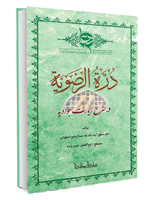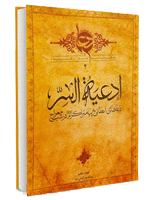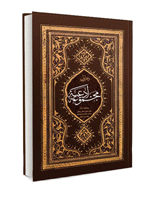- Prophet Muhammad (P.B.U.H&HF): Whenever one of you is needy and brings that to other people, he will not be satisfied. and Whenever someone is needy and brings that to Lord, he shall give him what he wants. sooner or later.
- Imam Sadiq (As.): Whenever you had tenderness in your heart, Pray. because your heart doesn't get tender unless it's pure.
- I told to Imam Baqir (A.S): “What is the meaning of “truly, Ibrahim was awwah and patient”? He replied: “Awwah means (the one who is) praying (to) and wailing (for God) a lot.””
- “Two people, who have acted alike, enter the heaven, but one of them sees the other one in a higher place. Then, he says: O’ Lord! How come has he a superior place in comparison to me while we acted alike? God the Almighty replies: “because he asked Me (whatever he needed) and you did not do that”.
- “The most knowledgeable person to God is the one who asks more from Him”
- “Whoever prays a lot, the angels say: This voice is familiar (to us) and this is the supplication which is accepted and this is the need which is provided”
-
The Holy Prophet (peace be upon him and his Household):
-
وَ لَوْ عَرَفْتُمُ اللَّهَ حَقَّ مَعْرِفَتِهِ لَزَالَتِ الْجِبَالُ بِدُعَائِكُم
If you knew god the way you should’ve known, Mountains definitely will be moved by your supplications. - Crying out of fear of God is the key to his mercy, it’s a sign for his acceptance and it’s a door to answering [supplications]
- Pray to God and believe in his answeres. But understand that God won't accept prays from an unwitting oblivious heart.
Categories:
Study of Quranic virtues in the supplication of Abu-Hamzah Thumali
بسم الله الرّحمن الرّحیم
Study of Quranic virtues in the supplication of Abu-Hamzah Thumali
Author: Maryam Sulaimani Maimand
A university academic staff member, Babak city
Translator: AbdolQhadir Mojahid Ghaznavi
Summary
Supplication is a spiritual connection between man and God, which has a crucial educational and constructive spiritual impact on human and it is man’s guidance towards intimacy with Allah the Almighty. Regarding that, written supplications are of exquisite resources. From amongst these supplications, the Abu-Hamza Thumali supplication encompasses numerous Qur’anic and ethical concepts. This supplication was taught to Abu-Hamza Thumali by His Holiness, Imam Sajjad (PBUH) and includes three main points. In the first axis, the Divine cognizance is considered to be the ultimate goal. In this axis, it refers to the inescapability of the servant from the scope of the divine authority, knowing the essence and God, as being the guide. In the second pivotal point, it refers to the right path, man salvation by clinging to the mercy of God, performing good deeds and avoiding the evils. And finally in the third main axis, it refers to the question of supplication, etiquettes, and man’s vital requests and demands.
Keywords. Abu-Hamza Thumali supplication, cognizance, Qur’anic virtues, salvation/prosperity
An introduction to Abu-Hamzah Thumali supplication
By focusing on the Qur’anic verses and the traditions from the Infallibles (The Prophet and 13 other immaculate figures of Islam), peace be upon them, we come to this conclusion that the main goal and objective behind the creation of the universe and the axis for the creation of Heavens and the Earth is mankind.
وَهُوَ ٱلَّذِي خَلَقَ ٱلسَّمَٰوَٰتِ وَٱلۡأَرۡضَ فِي سِتَّةِ أَيَّامٖ وَكَانَ عَرۡشُهُۥ عَلَى ٱلۡمَآءِ لِيَبۡلُوَكُمۡ أَيُّكُمۡ أَحۡسَنُ عَمَلٗاۗ
“He is the One Who created Heaven and Earth in six days. His Throne rises over the water, so He may test which of you is finest in action.”[1]
God, introduces worshipping as the main objective for man’s creation, and this important goal is attained only by the God's cognizance.
وَمَا خَلَقۡتُ ٱلۡجِنَّ وَٱلۡإِنسَ إِلَّا لِيَعۡبُدُونِ
“I have not created jinn and mankind except to serve Me.”[2]
The kind of worship and serving which man is created for, is a worship which the angels were and are not capable to perform.
In a tradition Imam Sadiq (PBUH) divided serving in three types:
الإمامُ الصّادقُ عليهالسلام : (إنّ) العُبّادَ ثَلاثةٌ : قَومٌ عَبَدوا اللّه َ عَزَّ و جلَّ خَوفا فتِلكَ عِبادَةُ العَبيدِ، وَ قَوم عَبَدوا اللّه َ تَباركَ و تَعالى طَلَبَ الثَّوابِ فتِلكَ عِبادَةُ الاُجَراءِ، و قَوم عَبَدوا اللّه َ عَزَّ و جلَّ حُبّا لَهُ فَتِلكَ عِبادَةُ الأحرارِ، و هِيَ أفضَلُ العِبادَةِ.
“Worshippers (‛ibada) are of three kinds: some people worship God, because they fear Him, and that is the worship of “slaves”; others worship God (Blessed and High is He) to seek rewards, and that is worship of “traders”; but others worship God (Mighty and Great is He) because out of love, this is the worship of the “free” and it is the most excellent worship.” [3]
- Of course, there are other aspects for creating mankind in the Qur’an, as well, such as: Mercy, trial and test, successorship and vicegerency, which are beyond the scope of our research.
Allama Tababaei said: “Due to the fact that the main objective is the creation of the Perfect Man- while its deficiency stage is not intended- if amongst mankind, there exist some persons who are at high level and perfection from every aspect, (they are) the ultimate goal behind the creation of Heavens and the Earth. It’s because from the verse,
أَيُّكُمۡ أَحۡسَنُ عَمَلٗا
“…which of you is finest in action”[4]
it is concluded that the main goal, is identifying the person who is the finest in action and deeds, whether the others do not have any good deeds or they have, but are incomplete and imperfect good deeds.”[5]
Therefore, in a Divine tradition, Allah the Almighty, regarding the Prophet (peace be upon Him and His Household) said:
لَوْلَاكَ لَمَا خَلَقْتُ الْأَفْلَاك
“If You were not (the main objective), I wouldn’t have created the spheres.”
Statements, manners, and characteristics of the Infallible Leaders (PBUT) are of the depiction of humanity divine life, and their presence is the manifestation of all the divine values.
Imam Sajjad (PBUH), as the architype of Perfect Man, has opened the gates of Islamic knowledge and cognizance to His followers in the form of supplications.
Abu-Hamzah Thumali supplication is one of the supplications of Imam Sajjad (PBUH) which He used to recite in the dawns of month of Ramadhan, and it is this supplication which is the main subject discussed in this research.
Divine cognizance
In all parts of the supplication, Imam (PBUH) introduces the ultimate goal of divine education and in all phrases in the form of supplication and psalms gives guidance towards that Unique Divine Essence. The first axis which Imam (PBUH) focuses on is the Divine Cognizance.
The Divine Cognizance is one of the most vital objectives and a key point for reaching the ultimate goal. In this part, three issues are discussed:
- The inescapability of the servant from the scope of the divine government.
إِلٰهِى لَاتُؤَدِّبْنِى بِعُقُوبَتِكَ، وَلَا تَمْكُرْ بِى فِى حِيلَتِكَ، مِنْ أَيْنَ لِىَ الْخَيْرُ يَا رَبِّ وَلَا يُوجَدُ إِلّا مِنْ عِنْدِكَ ؟ وَمِنْ أَيْنَ لِىَ النَّجاةُ وَلا تُسْتَطاعُ إِلّا بِكَ ؟ لَا الَّذِى أَحْسَنَ اسْتَغْنىٰ عَنْ عَوْنِكَ وَرَحْمَتِكَ، وَلَا الَّذِى أَساءَ وَاجْتَرَأَ عَلَيْكَ وَلَمْ يُرْضِكَ خَرَجَ عَنْ قُدْرَتِكَ
“O my God, do not discipline me by means of Your punishment, and do not subject me to Your planned strategy. How can I attain welfare, O Lord? while it is not found elsewhere save with You? How can I find redemption, neither he who has done righteous deeds can dispense with Your aid and mercy nor can he who did evildoings, dare to challenge you, and did not arrive at Your pleasure find an exit out of Your power.”
- Knowing the Divine Essence.
بِكَ عَرَفْتُكَ وَأَنْتَ دَلَلْتَنِى عَلَيْكَ وَدَعَوْتَنِى إِلَيْكَ، وَلَوْلا أَنْتَ لَمْ أَدْرِ مَا أَنْتَ
“Through You have I known You. You guided me to You and invited me towards You. If You were not (giving me help), I would have never known who You are.”
- God, as the guidance.
He has mentioned this in many phrases of the supplication. For example:
وَأَنَا الْجاهِلُ الَّذِى عَلَّمْتَهُ، وَأَنَا الضَّالُّ الَّذِى هَدَيْتَهُ،
“I am the ignorant that You have taught, I am the straying that You have guided,”
The right path to human prosperity and salvation
The second axis of the Imam's discussion in the supplication is the path to happiness and salvation of man, which is depicted in two subjects:
- Clinging to Divine Mercy,
In various phrases of the supplication reiterated that it is the generosity, benefaction, and kindness of God which has led us towards Him again, as an example amongst many is the following phrases:
حُجَّتِى يَا اللّٰهُ فِى جُرْأَتِى عَلَىٰ مَسْأَلَتِكَ مَعَ إِتْيانِى مَا تَكْرَهُ جُودُكَ وَكَرَمُكَ، وَعُدَّتِى فِى شِدَّتِى مَعَ قِلَّةِ حَيائِى رَأْفَتُكَ وَرَحْمَتُكَ،
“Yet, it is Your munificence and Your benefaction before you are asked, O God, which is my proof to ask from You despite that I have committed things that You dislike. It is Your kindness and mercy that I use as my means during misfortunes inflicting me despite my shamelessness.”
- Acting good and avoiding the evils.
For every community, training is considered to be vital and crucial. All the problems that exist in the world are caused by human neglect of spiritual and moral training and development. Reforming and purifying the soul is an important step in gaining virtues and avoiding moral and Quranic vices. In this section, the Qur’anic virtues such as, love, hope, recitation/remembrance, trust, asking for intercession, asking for forgiveness, forbearance, benefaction, patience, etc. are analyzed.
The Qur’anic virtues
Love from Imam's perspective
In one phrase, the Imam (PBUH) says:
وَالْحَمْدُ لِلَّهِ ٱلَّذِي تَحَبَّبَ إِلَيَّ وَهُوَ غَنِيٌّ عَنِّي
“All praise be to God alone Who has loved me while He is affluent and independent from me.”
These words and praises are of the blessed tongue of the Infallible, for whom God, the Almighty has showered with His utmost love.
The Infallible Imam (PBUH) has considered the love of God as His intercession and says:
وَحُبِّي لَكَ شَفِيعِي إِلَيْكَ
“And my love for You is my intercessor towards you.”
From this phrase, it can be concluded that this state of being (Love) is a great and strong intercessor for mankind which the Imam (PBUH) has taken it as an intercessor.
There is secret code in the aforementioned phrase, which raises the following questions: How is it possible that God, draw back His attention and subtle care from those who are His devotees? But above all, how is it possible that the hearts full of his love will be burned in the fire? Haven’t you heard the story of Prophet Abraham (PBUH) that how the fire (lighted by the enemy) treated Him? (The fire turned into a garden of followers). The truth is that it should be recited “We said: "O Fire, be cool, and safe for Abraham!”[6] on all lovers and beloved of God (Khalils) and on all those whose hearts are a source of divine love.
The status of divine friendship and love is substantiated when the Messenger is fully obeyed as well as His orders.
قُلۡ إِن كُنتُمۡ تُحِبُّونَ ٱللَّهَ فَٱتَّبِعُونِي يُحۡبِبۡكُمُ ٱللَّهُ
“Say: If you love God, obey me, and God will love you…”[7]
In the Ziyarah Jameah the above fact and condition of divine love is mentioned as follows:
مَنْ وَالاَكُمْ فَقَدْ وَالَىٰ ٱللَّهَ وَمَنْ عَادَاكُمْ فَقَدْ عَادَىٰ ٱللَّهَ وَمَنْ أَحَبَّكُمْ فَقَدْ أَحَبَّ ٱللَّهَ وَمَنْ أَبْغَضَكُمْ فَقَدْ أَبْغَضَ ٱللَّهَ وَمَنِ ٱعْتَصَمَ بِكُمْ فَقَدِ ٱعْتَصَمَ بِٱللَّهِ
“Whoever declares loyalty to you, has in fact declared loyalty to God,
whoever shows enmity towards you has in fact shown enmity towards God,
whoever loves you has in fact loved God,
whoever hates you has in fact hated God, and whoever holds fast to you has in fact held fast to God.”
And Imam Sadiq (PBUH) stated:
وَ هَلِ الدِّينُ إِلَّا الْحُبّ
“Is religion other than love?”[8]
In short, in the supreme stages, the differences and distinctions of people are based on the level of love they have for His Holiness or the Holy Lights of God.
Hope from Imam's perspective
One of the remarks Imam Sajjad (PBUH) makes considering His attention towards God, is being hopeful of God as well as He has considered God as the source of Grace, Mercy and Benevolence.
One of the factors which causes to be hopeful is the all-embracing mercy of God.
He the almighty says:
قُلۡ يَٰعِبَادِيَ ٱلَّذِينَ أَسۡرَفُواْ عَلَىٰٓ أَنفُسِهِمۡ لَا تَقۡنَطُواْ مِن رَّحۡمَةِ ٱللَّهِۚ إِنَّ ٱللَّهَ يَغۡفِرُ ٱلذُّنُوبَ جَمِيعًاۚ إِنَّهُۥ هُوَ ٱلۡغَفُورُ ٱلرَّحِيمُ
Say: "My servants who have acted extravagantly against themselves still do not despair of God's mercy. God forgives all offences; He is the Forgiving, the Merciful.”[9]
Imam Sajjad (PBUH) while praising God, says:
وَالْحَمْدُ لِلَّهِ ٱلَّذِي لاَ أَرْجُو غَيْرَهُ وَلَوْ رَجَوْتُ غَيْرَهُ َلأَخْلَفَ رَجَائِي
“All praise be to God alone for other than Whom I do not hope, and even if I hope for anyone else, he shall certainly disappoint me.”
Also, He says:
ٱلَّذِي لَوْلاَ مَا أَرْجُو مِنْ كَرَمِكَ وَسَعَةِ رَحْمَتِكَ وَنَهْيِكَ إِيَّايَ عَنِ ٱلَّذِي لْقُنُوطِ لَقَنَطْتُ عِنْدَمَا أَتَذَكَّرُهَا يَا خَيْرَ مَنْ دَعَاهُ دَاعٍ وَأَفْضَلَ مَنْ رَجَاهُ رَاجٍ
“The One whose generosity and all-embracing mercy and warning me against those things which make desperate, I would have despaired whenever I remember my sins. O the Greatest Besought Who has been ever besought! O Most Favorable Hoped!”
In Surah Yusuf, verse 12, God forbids desperation and has specified it to the unbelievers:
وَلَا تَاْيۡـَٔسُواْ مِن رَّوۡحِ ٱللَّهِۖ إِنَّهُۥ لَا يَاْيۡـَٔسُ مِن رَّوۡحِ ٱللَّهِ إِلَّا ٱلۡقَوۡمُ ٱلۡكَٰفِرُونَ
“And do not despair of the comfort of God, Indeed, no one despairs of the comfort of God except the disbelieving people.”
Likewise, the Imam (PBUH) considered God as the source of grace, mercy and benevolence and forbade the servants from desperation.
Patience from Imam's perspective
عَن أَبِي عَبْدِ اللَّهِ (ع) قَالَ: إِنَّا صُبُرٌ وَ شِيعَتُنَا أَصْبَرُ مِنَّا قُلْتُ جُعِلْتُ فِدَاكَ كَيْفَ صَارَ شِيعَتُكُمْ أَصْبَرَ مِنْكُمْ قَالَ لِأَنَّا نَصْبِرُ عَلَى مَا نَعْلَمُ وَ شِيعَتُنَا يَصْبِرُونَ عَلَى مَا لَا يَعْلَمُونَ.
“Indeed, We are patient, and our Shiites are more patient than us.” I said, May I be sacrificed to you, how did your Shiites become more patient than you? He said, “Because we are patient with what we know, and our Shiites are patient with what they don't know.”[10]
Patience and resistance to suffering are among the common characteristics of the Infallible Imams (PBUT), including Imam Sajjad (PBUH), who was an exemplar of patience in those conditions full of tensions.
In a phrase of the Supplication, Imam Sajjad (PBUH) says:
اَللَّهُمَّ إِنِّي أَسْأَلُكَ صَبْراً جَمِيلاً
“O God, I beseech You for graceful patience (without complain),”
Imam asks God to grant Him a patience which the Prophet Jacob (PBUH) mentioned hearing the news about Josef death by His brothers:
فَصَبۡرٞ جَمِيلٞۖ وَٱللَّهُ ٱلۡمُسۡتَعَانُ عَلَىٰ مَا تَصِفُونَ
“…so graceful patience, and God (is) the sought help/support from on what you describe.”[11]
عَنْ جَابِرٍ قَالَ: قُلْتُ لِأَبِي جَعْفَرٍ (ع) يَرْحَمُكَ اللَّهُ مَا الصَّبْرُ الْجَمِيلُ قَالَ ذَلِكَ صَبْرٌ لَيْسَ فِيهِ شَكْوَى إِلَى النَّاس
Jabir said: I asked Imam Baqhir (PBUH), May God have mercy on You, what is the graceful patience?
He said: “That is a patience in which there is no complain to people.”[12]
Trust from Imam's perspective
It’s one of the religious positions and a status of the people of certainty (Yaqeen) and of the ranks of the intimates (Moqarrabeen). Imam Sajjad (PBUH) who is the outstanding exemplar of trust, in a phrase of the supplication states:
سَيِّدِي عَلَيْكَ مُعَوَّلِي وَمُعْتَمَدِي وَرَجَائِي وَتَوَكُّلِي وَبِرَحْمَتِكَ تَعَلُّقِي
“O my Master, on You is my dependence, reliance, hope and trust and to Your mercy is my attachment.”
In another phrase He states:
يَا سَيِّدِي إِنْ وَكَلْتَنِي إِلَىٰ نَفْسِي هَلَكْتُ
“O my Master, if you leave me to rely on myself, I shall be perished.”
Imam Sajjad (PBUH) emphasizes in these two phrases that trust and rely must be only on God since if man is left to his own self, he shall end in destruction.
In the Qur’an, regarding the reliance and trust, there are various verses that we mention some of them as follows:
وَمَا لَنَآ أَلَّا نَتَوَكَّلَ عَلَى ٱللَّهِ وَقَدۡ هَدَىٰنَا سُبُلَنَاۚ وَلَنَصۡبِرَنَّ عَلَىٰ مَآ ءَاذَيۡتُمُونَاۚ وَعَلَى ٱللَّهِ فَلۡيَتَوَكَّلِ ٱلۡمُتَوَكِّلُونَ
“And why should we not trust in God, while He has guided us in our ways? We will surely endure patiently, whatever you hurt us and in God let all put their trust who put their trust.”[13]
وَمَن يَتَوَكَّلۡ عَلَى ٱللَّهِ فَهُوَ حَسۡبُهُ
“And whosoever puts his trust in God, He shall suffice him.”[14]
وَتَوَكَّلۡ عَلَى ٱلۡحَيِّ ٱلَّذِي لَا يَمُوتُ وَسَبِّحۡ بِحَمۡدِهِ
“And rely on the Ever living Who dies not and celebrate His praise.”[15]
Appealing/recourse for intercession and advocacy from the Imam's perspective
- Prayer is a means of recourse
Considering the fact that He is Infallible, Imam Sajjad has implemented God's order in his supplication for the attainment of the Nearness/Intimacy status, and according to the Qur’anic verse,
يَـٰٓأَيُّهَا ٱلَّذِينَ ءَامَنُواْ ٱتَّقُواْ ٱللَّهَ وَٱبۡتَغُوٓاْ إِلَيۡهِ ٱلۡوَسِيلَةَ وَجَٰهِدُواْ فِي سَبِيلِهِۦ لَعَلَّكُمۡ تُفۡلِحُونَ
“O believers, fear God, and seek the means to come to Him, and struggle in His Way; haply you will prosper.”,[16]
He states in one of the phrases:
وَبِدُعَائِكَ تَوَسُّلِي مِنْ غَيْرِ ٱسْتِحْقَاقٍ لاﹾِسْتِمَاعِكَ مِنِّي
“And I made Your supplication my mean without any deserving of your listening to me.”
The Imam (PBUH), with the utmost humility and humbleness, has risen to the position of teaching and teaches us that one of the tools of recourse (Tawassol) is supplication. This speech of the Imam (PBUH) and the rest of his speeches are whether humility and humbleness in the presence of God, or teachings of supplication, because no one is worthy of the position of prophets and saints.
Imam's method, both in the secret and intimate supplications and also of Sahifa Sajjadiyah supplications and in the supplication of Abu Hamza Thumali, is that during a series of his wishes he sends (peace and blessings to the Messenger of God).
This recourse is the same simple blessing that is common among Shiites.
ٱللّٰهُمَّ صَلِّ عَلَى مُحَمَّدٍ وَآلِ مُحَمَّدٍ
“O God, bless Mohammad and the Progeny of Mohammad.”
And it is so, due to the following verse of the Qur’an which God says:
إِنَّ ٱللَّهَ وَمَلَـٰٓئِكَتَهُۥ يُصَلُّونَ عَلَى ٱلنَّبِيِّۚ يَـٰٓأَيُّهَا ٱلَّذِينَ ءَامَنُواْ صَلُّواْ عَلَيۡهِ وَسَلِّمُواْ تَسۡلِيمًا
“God and His angels shower blessings on the Prophet. O you who believe! Ask blessings on him and salute him with a worthy salutation.”[17]
And Imam Ali (PBUH) said: “Send peace upon Mohammad and submit to His successor, and beware that your blesses upon Mohammad as the Messenger of God, is not accepted unless by accepting the Guardianship (Wilayah), you surrender to Ali (PBUH).”
- Recourse/appeal to Qur’an
The Qur'an is the most important way to get closer to God, which the religious figures swear by its greatness and believe in it as their mediator and intercessor. The Commander of the Believers, Imam Ali (PBUH) states:
وَ اعْلَمُوا أَنَّ هَذَا الْقُرْآنَ هُوَ النَّاصِحُ الَّذِي لَا يَغُشُّ وَ الْهَادِي الَّذِي لَا يُضِلُّ وَ الْمُحَدِّثُ الَّذِي لَا يَكْذِبُ،
“And know that this Qur’an is the one who advises and does not deceive, the guide who does not go astray, and the narrator who does not lie.”[18]
In the Qur’an itself, in Surah Nahl, Verse 89, God introduces the Qur’an as follows:
وَنَزَّلۡنَا عَلَيۡكَ ٱلۡكِتَٰبَ تِبۡيَٰنٗا لِّكُلِّ شَيۡءٖ
“We have sent the Book down to you as clarification to everything,”
The adherence and recourse to the Qur'an that the Imam Ali (PBUH) used in that sermon is derived from the verses of the Qur'an. Such as:
وَٱعۡتَصِمُواْ بِحَبۡلِ ٱللَّهِ جَمِيعٗا وَلَا تَفَرَّقُواْ
“And cling firmly together by means of Allah's Strong Rope and be not divided among yourselves,”[19]
Clinging to the verses of God and His Messenger is clinging to God, and the clinging and adhering person shall be safe and immune, and his guidance is guaranteed.
The Messenger of God (PBUH&F) stated:
كِتابُ اللّهِ حَبْلٌ مَمْدودٌ مِنَ السَّماءِ إلَى الأرضِ
إنَّ هذَا القُرآنَ حَبلُ اللّهِ
“The Book of God is a rope stretched from heaven to earth.”
“Indeed, this Qur’an is the Rope of Allah”.
And Imam Sajjad (PBUH) also said:
و حَبلُ اللّه ِ هُوَ القُرآنُ
“And the rope of Allah, is the Qur’an”.[20]
- Adherence and recourse to the Prophet and His family (PBUT).
The Imam (PBUH) continues:
وَ بِحُبِّي النَّبِي الاْمِّي الْقُرَشِي الْهاشِمِي الْعَرَبِي التِّهامِي الْمَكِّي الْمَدَنِي اَرْجوُ الزُّلْفَةَ لَدَيكَ
“And with my love for the Prophet; the Ummi (Not educated at schools or by any mankind teacher), the Qurayshite, the Hashemite, the Arab, the Tihami, the Meccan, and the Madanite, I hope for proximity to You.”
That is according the verse 64, Surah Nisaa, that God, states:
وَلَوۡ أَنَّهُمۡ إِذ ظَّلَمُوٓاْ أَنفُسَهُمۡ جَآءُوكَ فَٱسۡتَغۡفَرُواْ ٱللَّهَ وَٱسۡتَغۡفَرَ لَهُمُ ٱلرَّسُولُ لَوَجَدُواْ ٱللَّهَ تَوَّابٗا رَّحِيمٗا
“If they had come to you and sought forgiveness from God whenever they harmed themselves, and the Messenger had prayed for forgiveness for them, they would have found that God is Ever-Turning, Merciful.”
And the in commentaries, of “the firmest Handle” in verse 256, Surah Baqarah the following statement from the Prophet (PBUH&F) is narrated:
مَن أحَبَّ أن يَتَمَسَّكَ بِالعُروَةِ الوُثقى فَليَتَمَسَّك بِحُبِّ عَلِيٍّ وأهلِ بَيتي
“Whoever loves to hold onto the firmest handhold, he shall hold on to the love of Ali and my family.”[21]
Appreciation and thankfulness in the words of Imam
وَلَكَ ٱلْحَمْدُ عَلَىٰ بَسْطِ لِسَانِي أَفَبِلِسَانِي هٰذَا ٱلْكَالِّ أَشْكُرُكَ أَمْ بِغَايَةِ جُهْدِي فِي عَمَلِي أُرْضِيكَ وَمَا قَدْرُ لِسَانِي يَا رَبِّ فِي جَنْبِ شُكْرِكَ إِلٰهِي إِنَّ جُودَكَ بَسَطَ أَمَلِي وَشُكْرَكَ قَبِلَ عَمَلِي
“And only to You all praise be for expounding of my tongue. Am I able to appreciate You with this inarticulate tongue, or do I please You with my ultimate effort in my deed? And how great is my tongue, O Lord, when it comes to thank You? My God, Your generosity has increased my hope and Your appreciation has accepted my deed.”
- Imam Sajjad’s expressions about verbal and practical debility to thank the bounties of God.
By expressing verbal and practical disability to thank Allah the Almighty, He depicts humbleness and humility in relation to God and His blessings, and also, He teaches us not to limit our thanking and gratitude to just lingual but practical as well.
- Gratitude is a necessity of faith: Another point that Imam presents about gratitude is that gratitude to God is the duty of every believer.
وَإِذۡ تَأَذَّنَ رَبُّكُمۡ لَئِن شَكَرۡتُمۡ لَأَزِيدَنَّكُمۡۖ وَلَئِن كَفَرۡتُمۡ إِنَّ عَذَابِي لَشَدِيدٞ
So your Lord announced: " If you act grateful, I shall give you even more, while if you are thankless, then My torment will be severe."[22]
Based on the Qur'an, Surah Baqarah, Verse 172, Surah Zumar, Verse 7, Gratitude is a requirement of faith and belief.
Therefore, thanking God is compatible with faith in God, just as being thankless to God is compatible with disbelief in Him.
- The realization of divine gratitude, depends on the servant's actions as well.


